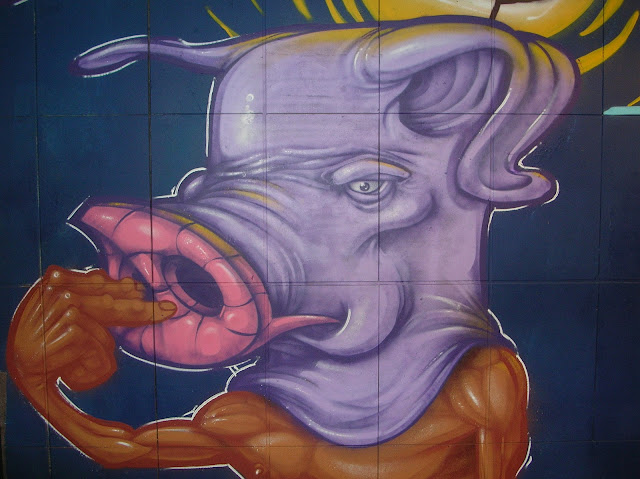Thomas Hobbes (1588-1679) would be the perfect person to inaugurate an exhibition of Edouard Martinet's metallic sculptures. I imagine him reading the first few lines of his magnum opus "Leviathan" to an ecstatic crowd filling the gallery:
"NATURE (the art whereby God hath made and governs the world) is by the art of man, as in many other things, so in this also imitated, that it can make an artificial animal. For seeing life is but a motion of limbs, the beginning whereof is in some principal part within, why may we not say that all automata (engines that move themselves by springs and wheels as doth a watch) have an artificial life? For what is the heart, but a spring; and the nerves, but so many strings; and the joints, but so many wheels, giving motion to the whole body, such as was intended by the Artificer? Art goes yet further, imitating that rational and most excellent work of Nature, man... "
Hobbes attempted to explain the universe as an amalgamation of mechanical processes or movements that are governed by mechanistic principles. Edouard Martinet seems to have taken the essence of mechanical philisophy quite literally.

Starting in the early 1990s, his powerfull imagination and artistic skill (he is a teacher of graphic design), combined with a childhood passion for insects and an uncompromising attention to detail, made him able to visualise a discarded piece of junk metal as the missing part of a larger than life mechanically assembled grasshopper or praying mantis.
Using old rusty bicycle parts, tins or whatever other scrap metal or disused object he could find in junkyards, boot sales or second hand shops and antique fairs, Martinet has managed to recreate in extraordinary detail the anatomy of diverse creatures from insects to fish, amphibians and birds.
What makes these sculptures so unique is the feeling that one gets when carefully observing these objects. There is a kind of authority of creation guaranteeing that these mechanical creatures are complete and capable of actually flying, walking, swimming or hopping around based purely on mechanical means. This feeling is probably due to Martinet preferring to use screws, nuts and bolts to join existing original pieces together rather than use welding to intervene and change the actual form of a given object to suit his needs.
Edouard Martinet lives and works in Rennes, France.
Visit his site here:







































